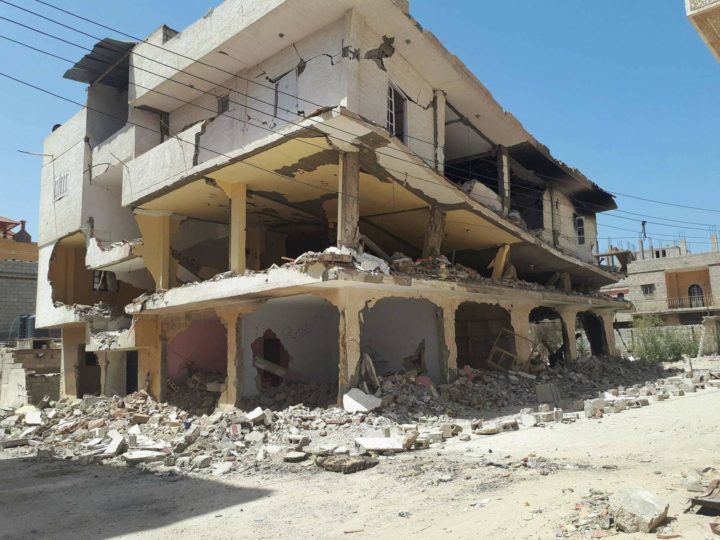Deal Contravenes EU Pledge, Risks Facilitating Further Abuses
Claudio Francavilla EU Advocacy Officer
Last week, Italian Foreign Minister Luigi Di Maio responded to outrage over a possible massive arms sale to Egypt by saying the deal hadn’t been finalized. But given serious human rights abuses in Egypt, the potential transfer, worth up to €11 billion, should never have been considered in the first place, and it should not go through.
Following the Rab’a Massacre in 2013, in which Egyptian security forces killed at least 1,150 demonstrators, European Union foreign ministers pledged “to suspend export licenses to Egypt of any equipment which might be used for internal repression” and to “review their security assistance with Egypt.”
At least 12 EU member states, including Italy, have broken that pledge, despite lack of accountability for the massacre and intensifying repression under President al-Sisi’s rule. Human rights groups have documented the use of European-supplied military or security equipment to commit violations against peaceful protestors and bystanders, including during the September 2019 crackdown on protests and in military operations in North Sinai, where the Egyptian army has committed war crimes.
Seven human rights organizations, including Human Rights Watch, called on the EU in February to take a series of bold measures – including proper implementation of the 2013 pledge – to address the human rights crisis in Egypt, echoing the November 2019 European Parliament’s call for a “profound and comprehensive review of [the EU’s] relations” with the country.
The arms deal comes amid a public outcry in Italy over the recent arrest, detention, and alleged torture in Cairo of Patrick Zaki, an Egyptian researcher enrolled in an Italian university. The case recalled the brutal murder of Italian researcher Giulio Regeni in 2016, allegedly at the hands of Egypt’s security forces.
Though his family and Italian civil society have called relentlessly for truth and accountability, successive Italian governments have failed to take persuasive measures to secure concrete progress on Regeni’s case. In 2016, Italy recalled its ambassador from Cairo to protest the Egyptian authorities’ lack of genuine cooperation; the ambassador returned the following year despite lack of any meaningful progress.
Authorizing this arms transfer would send the message that the Egyptian government’s brutal crackdown on human rights, lack of genuine cooperation on the Regeni murder, and refusal to release Zaki and thousands of other political prisoners unjustly jailed in Egypt’s filthy and overcrowded prisons come at no price.
Italian authorities should halt all transfers of military equipment to Egypt, heeding the call of Amnesty Italia’s #StopArmiEgitto campaign.










